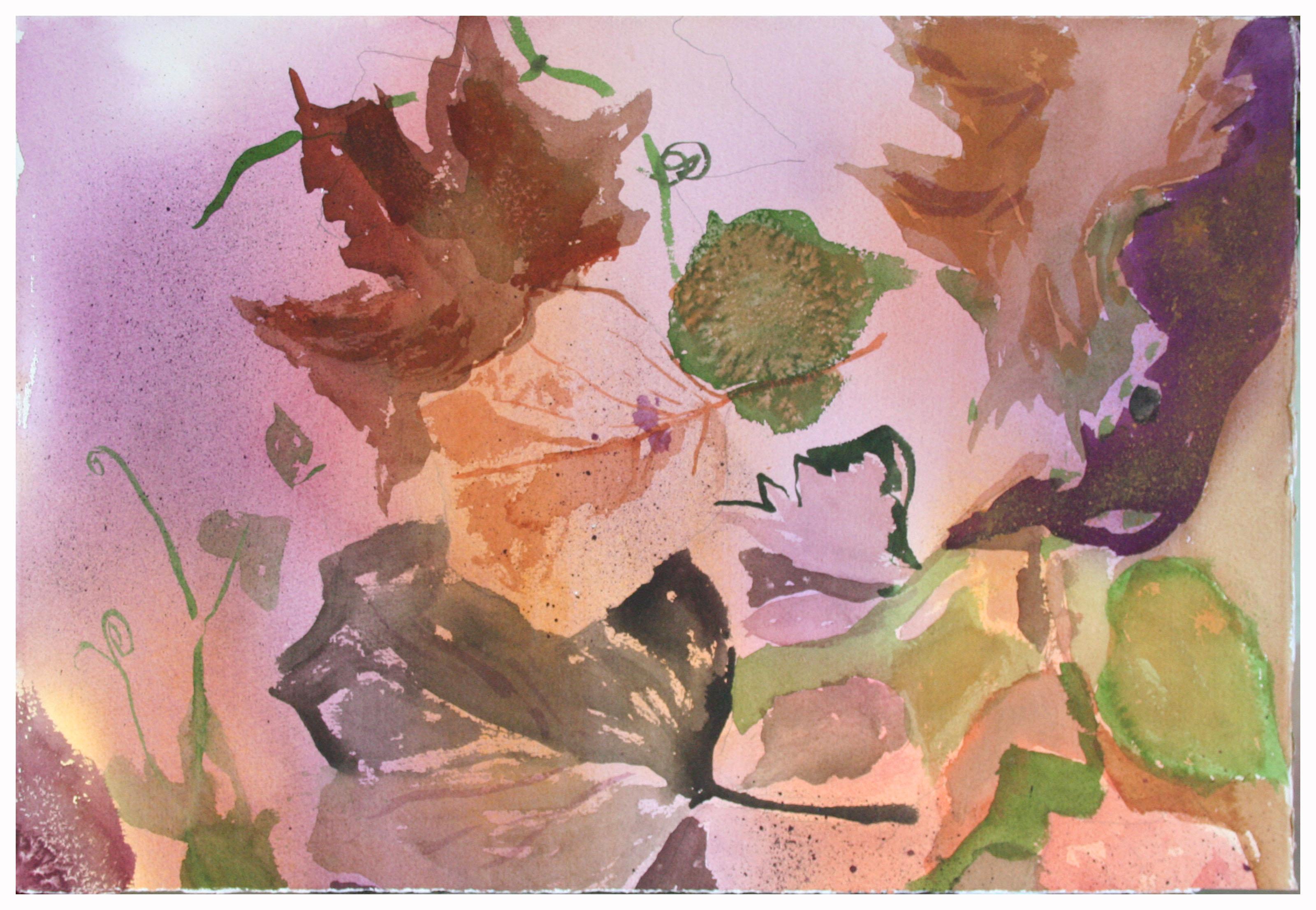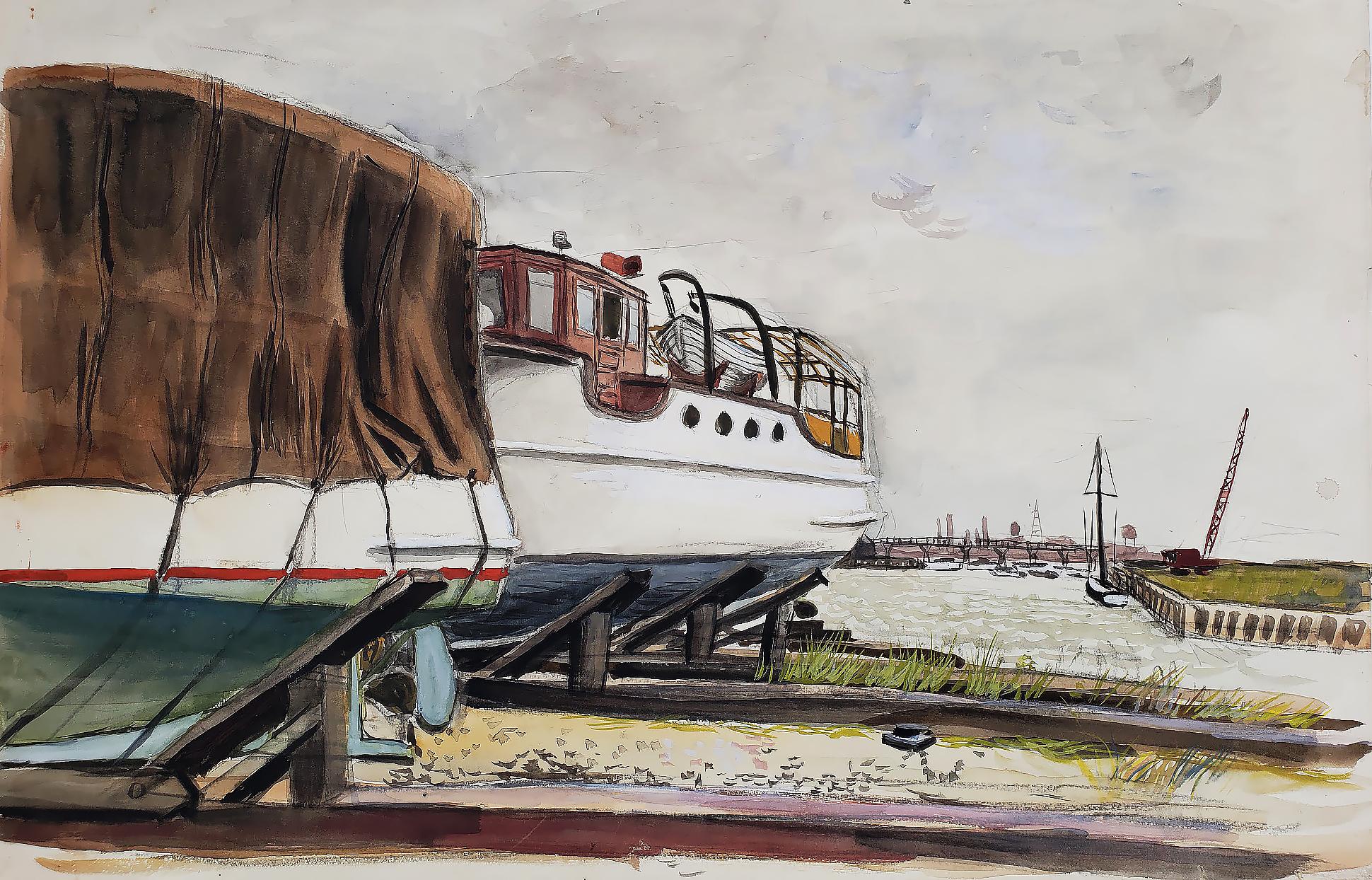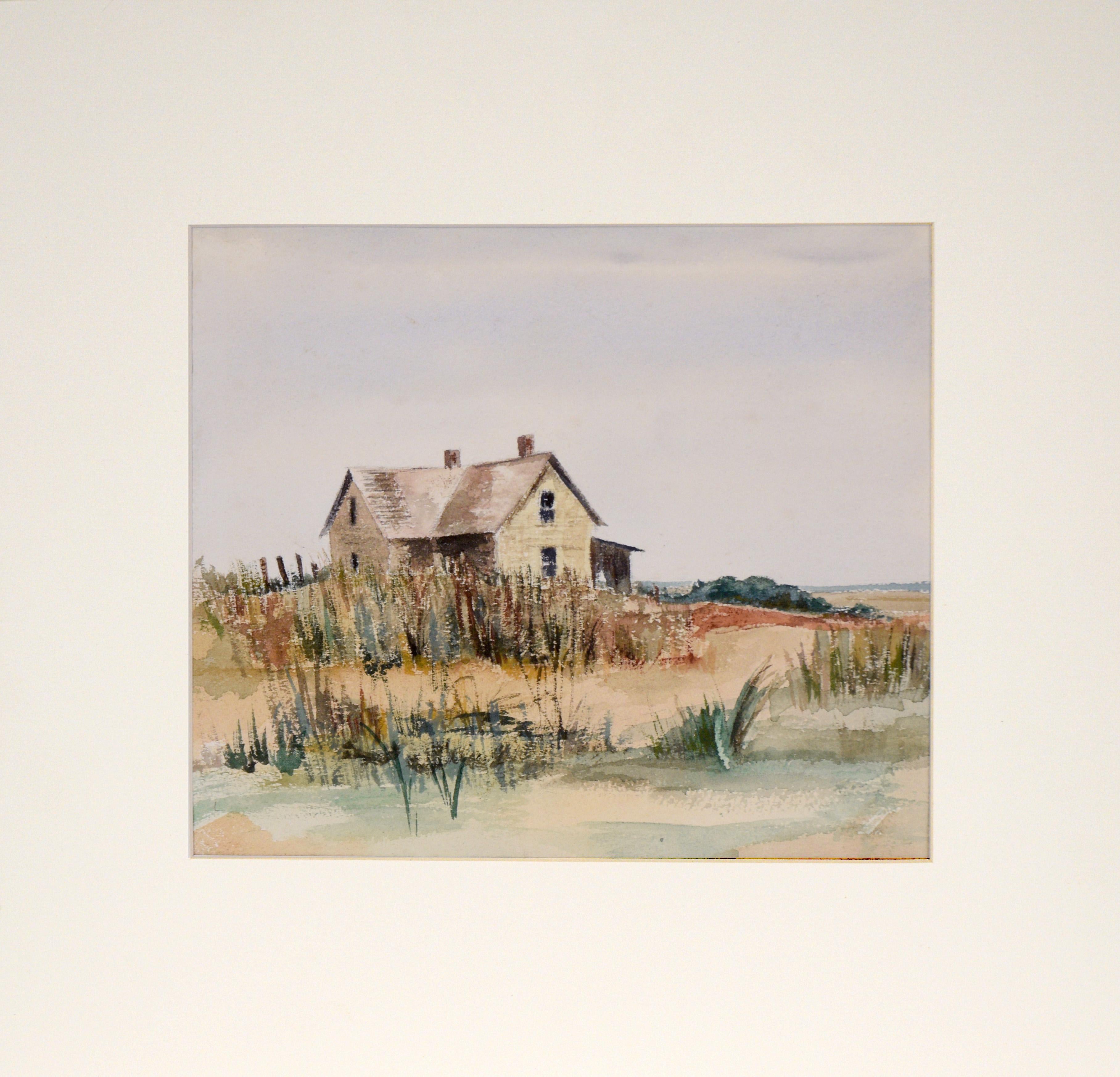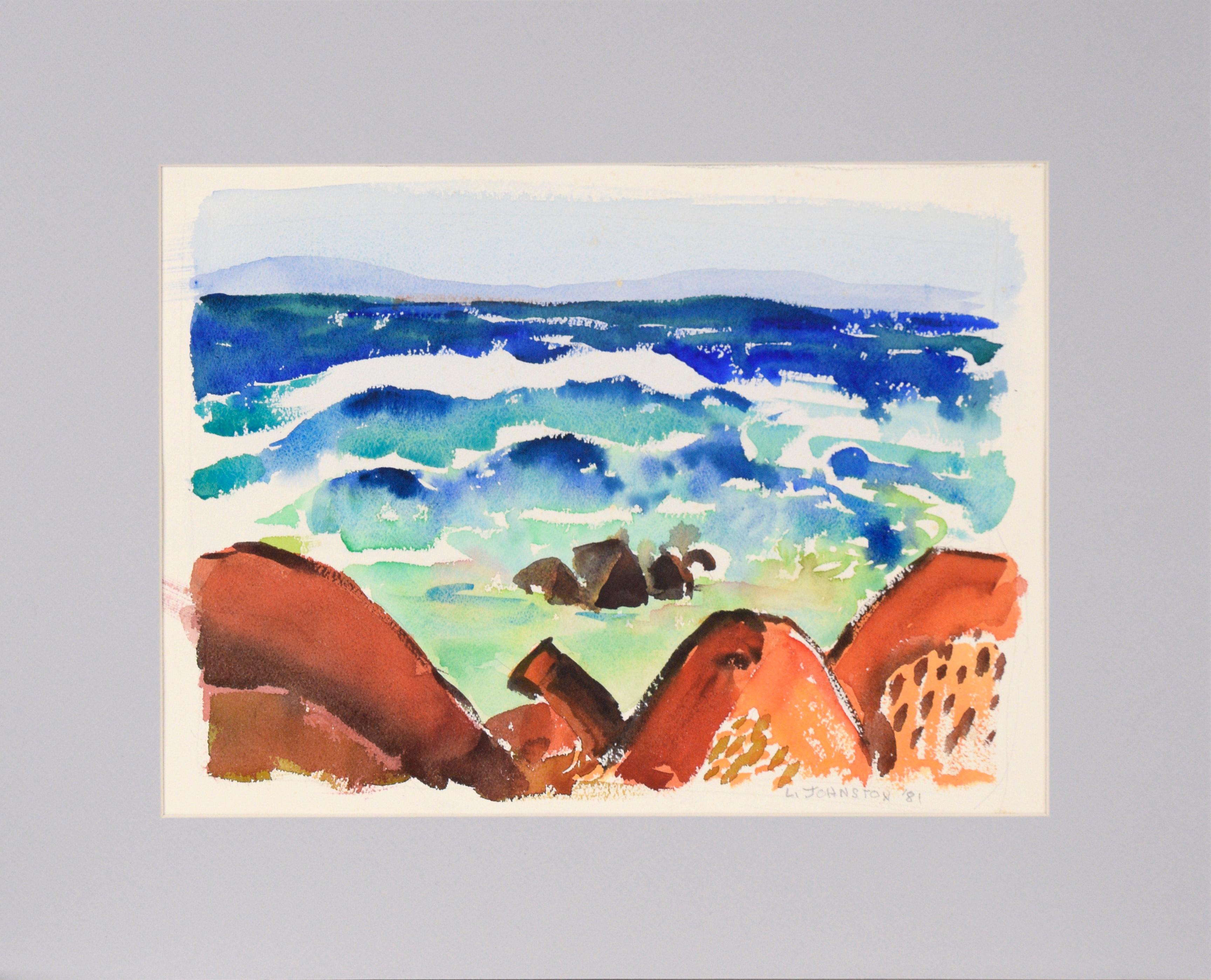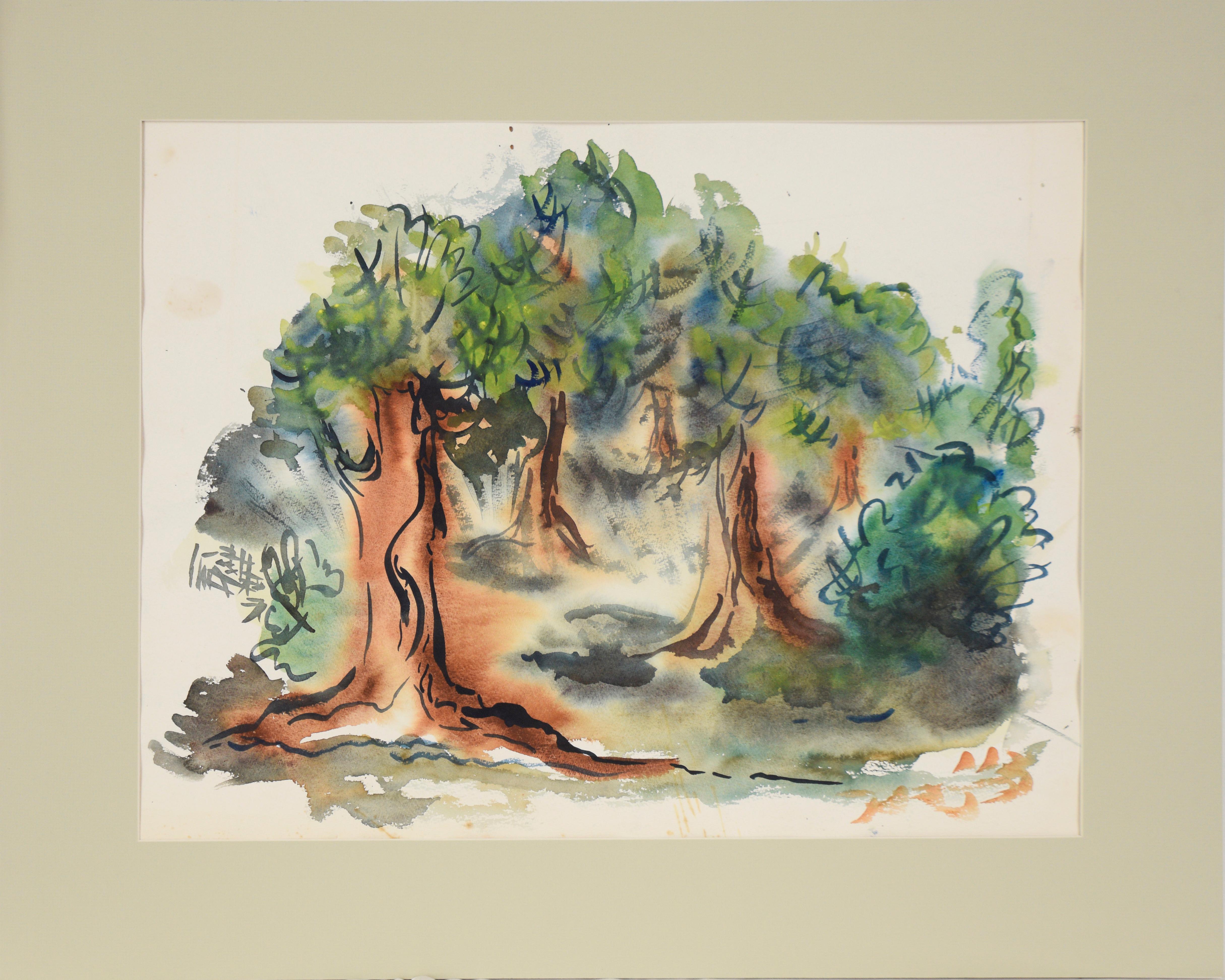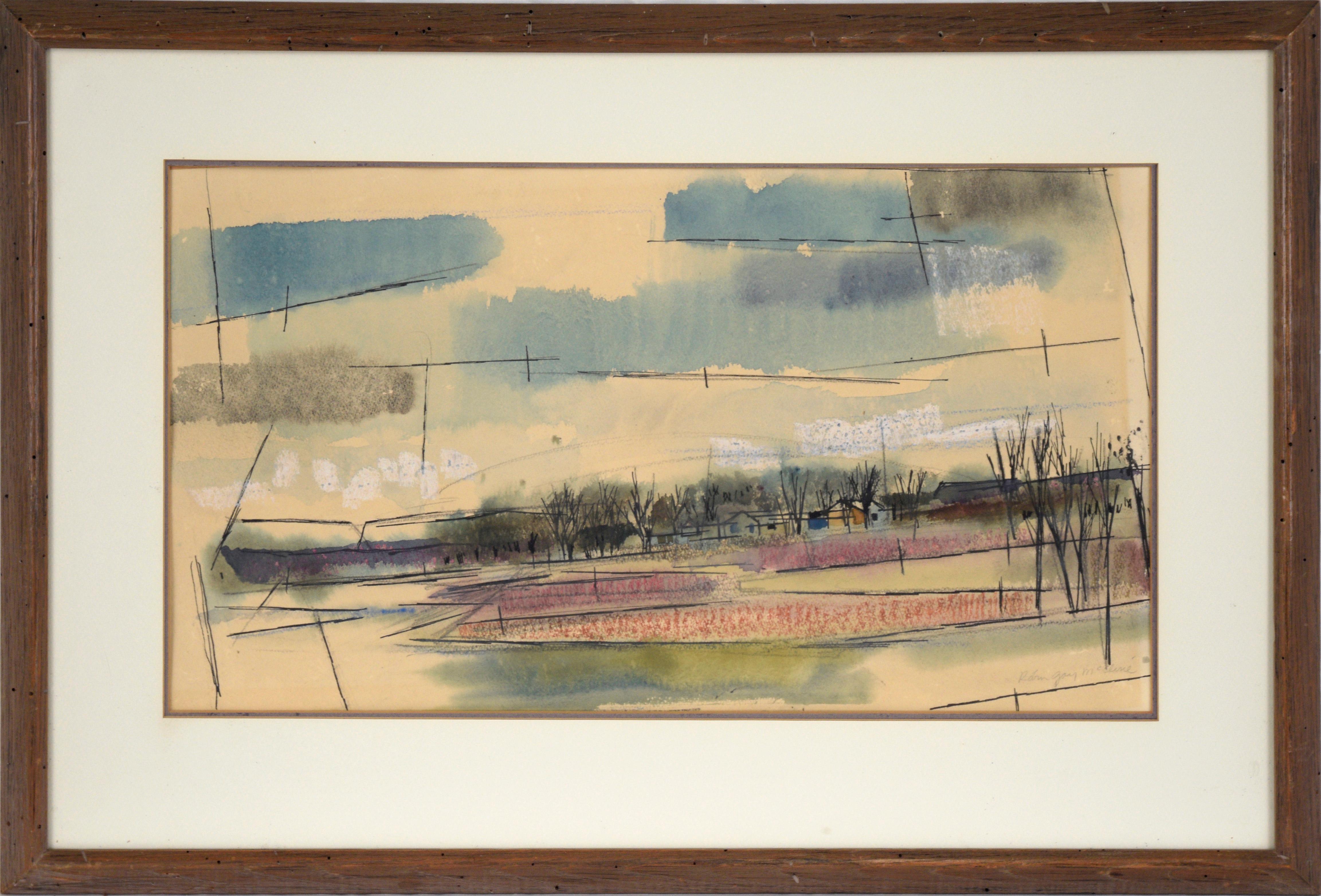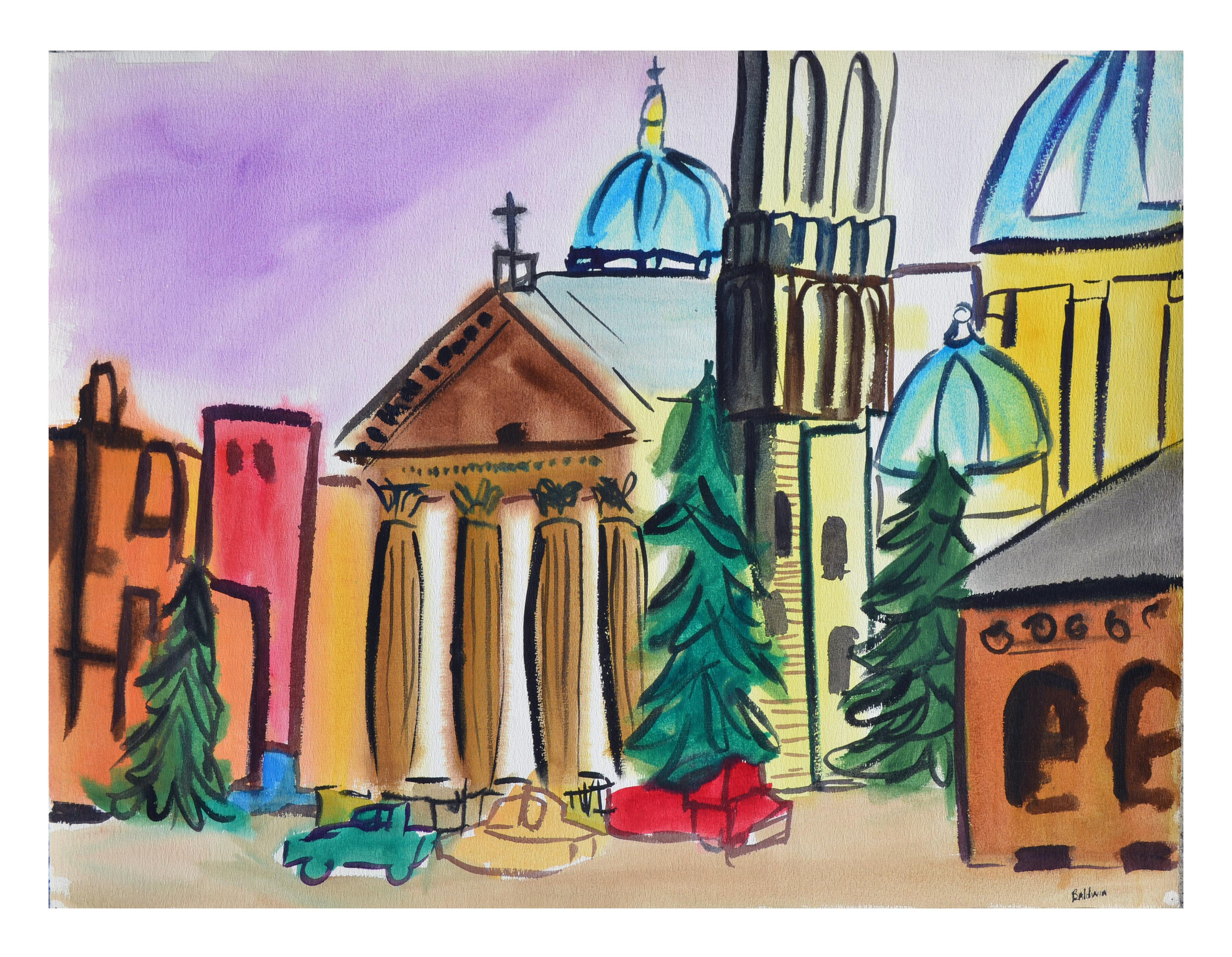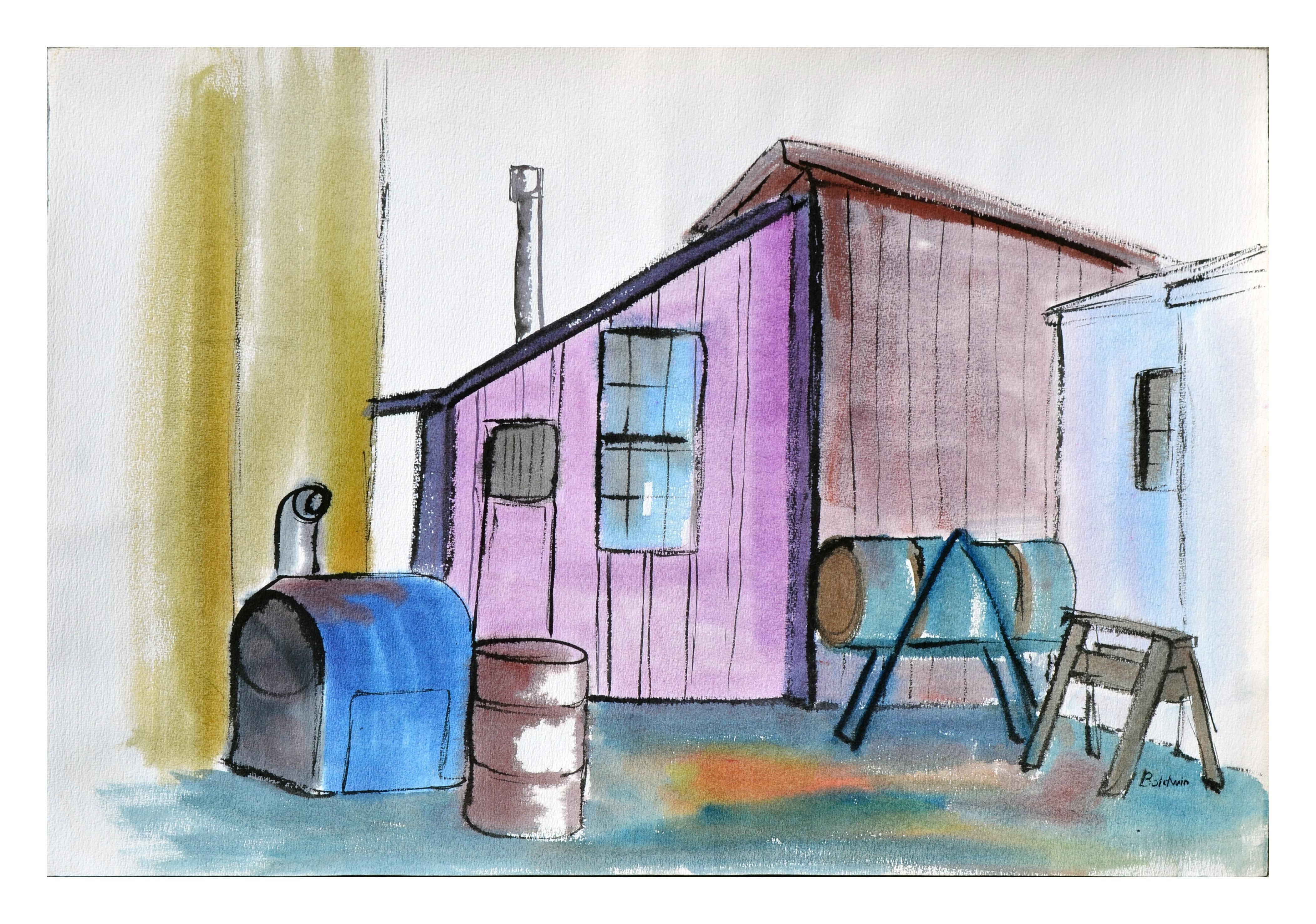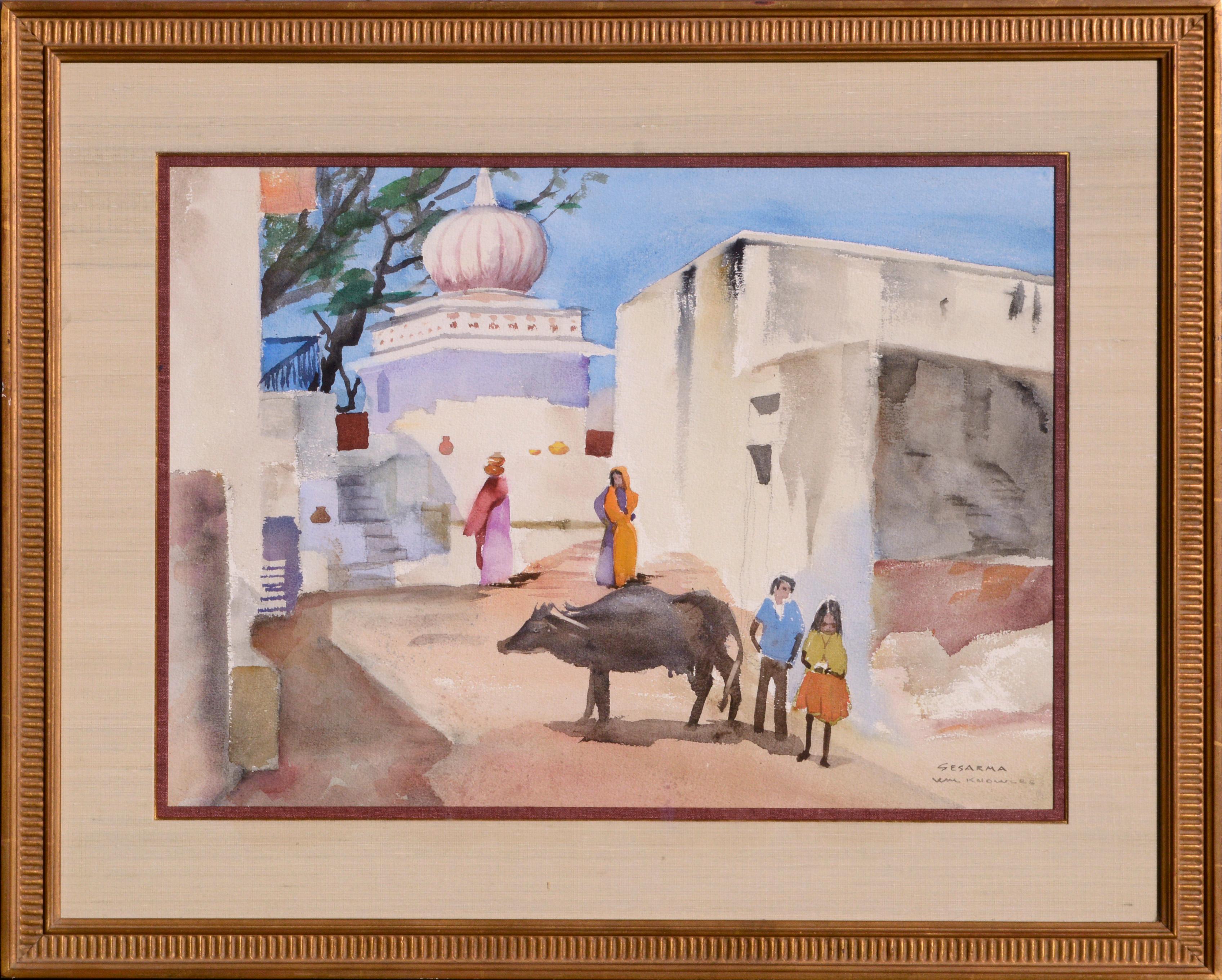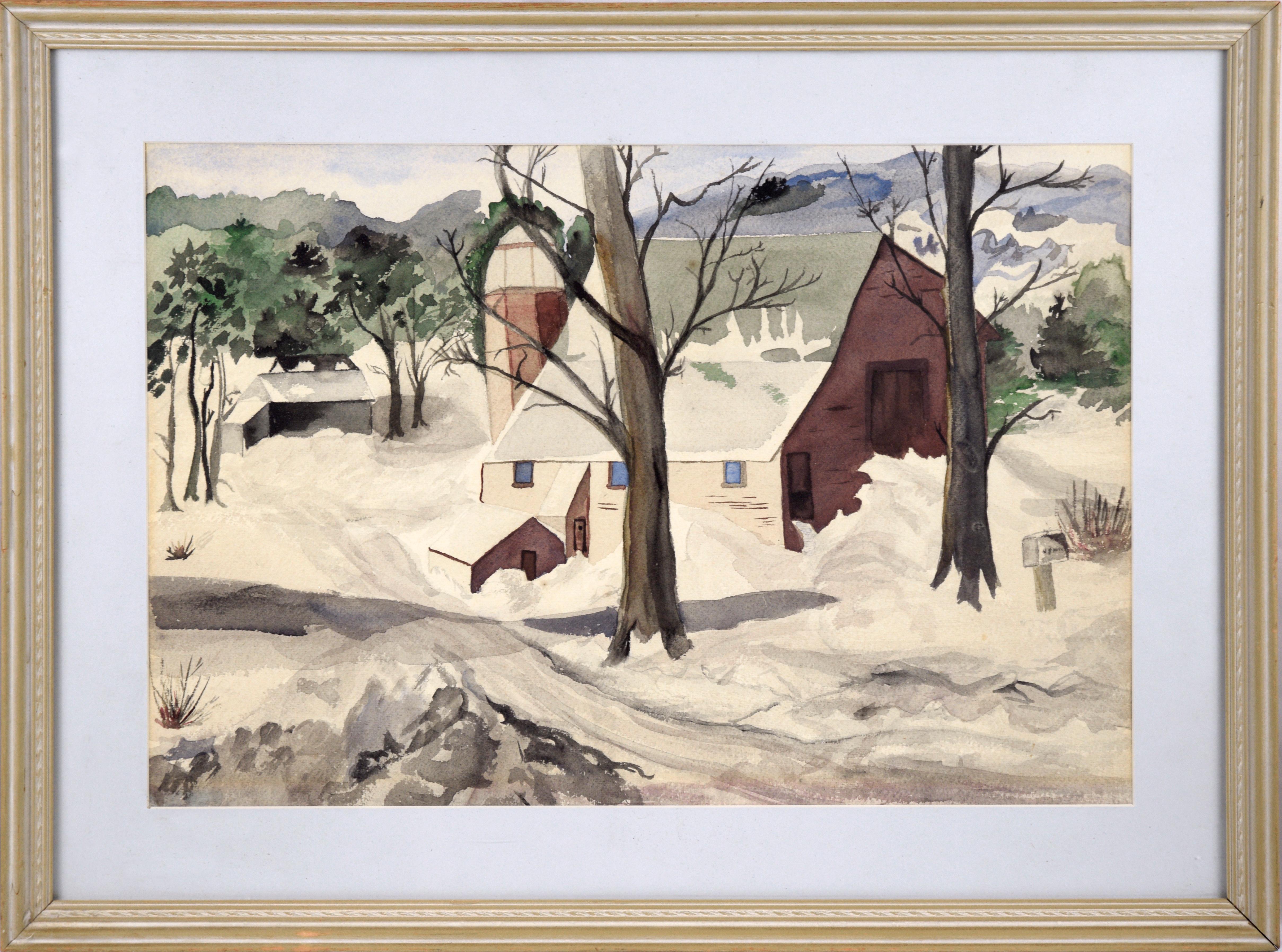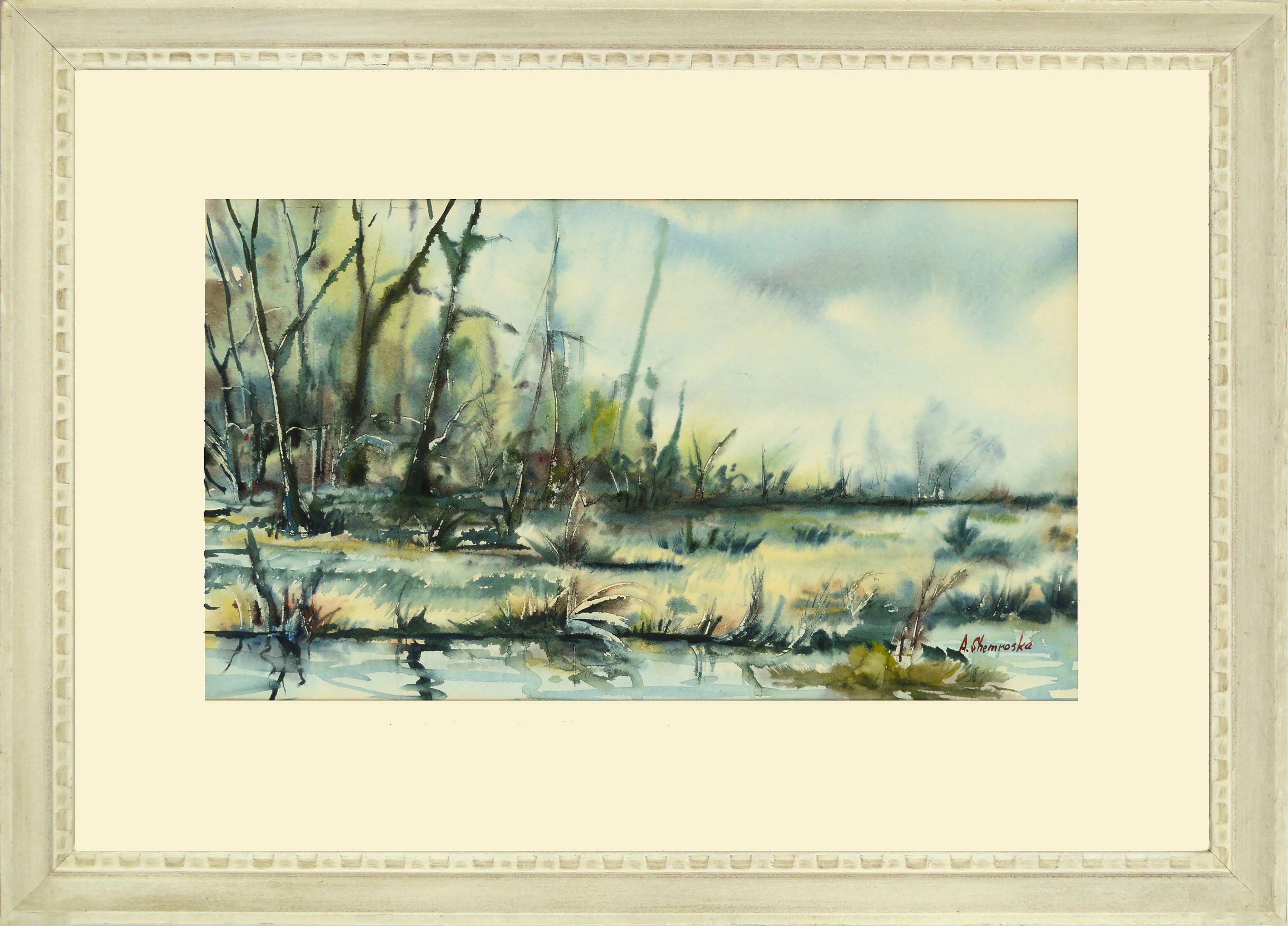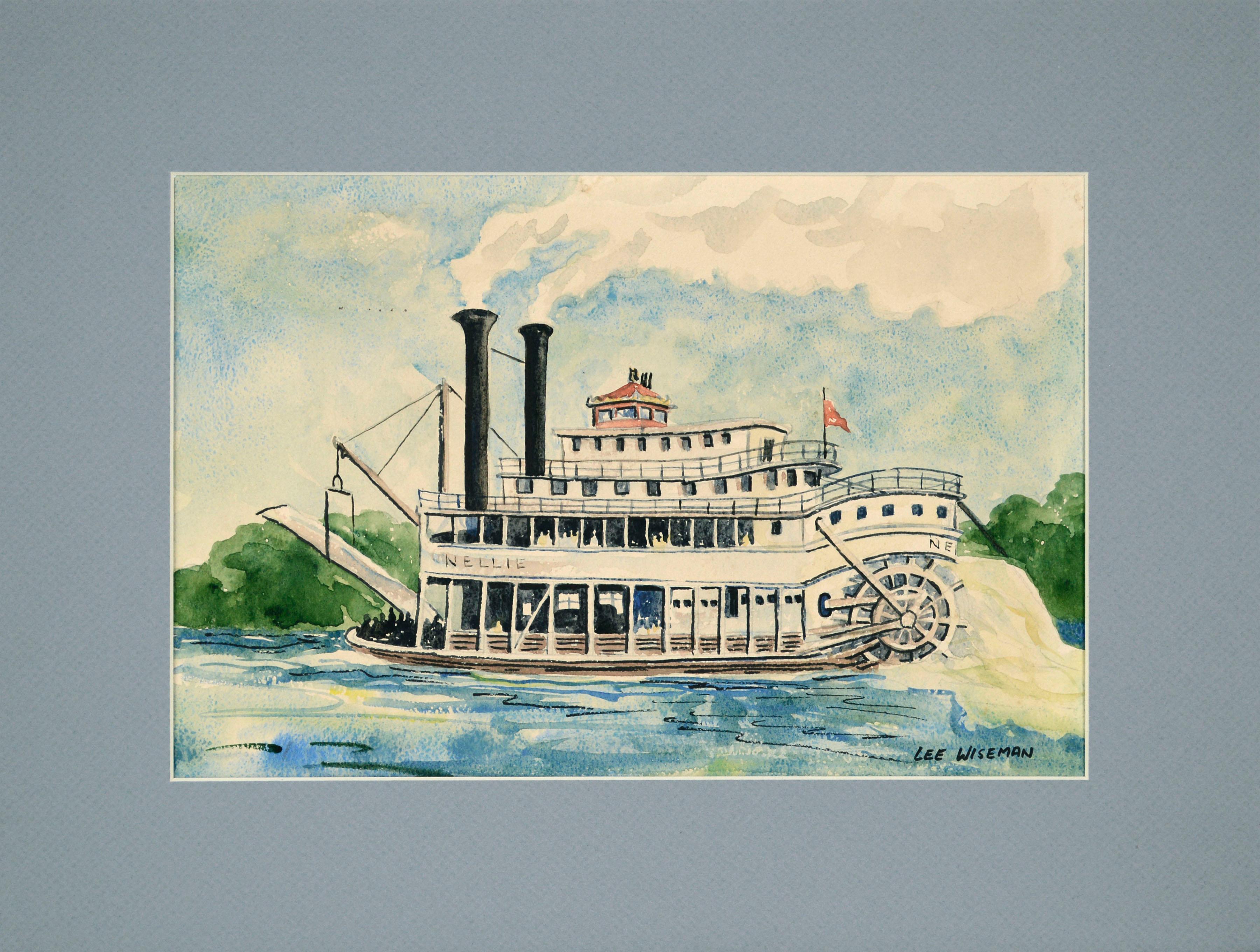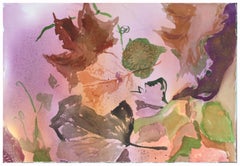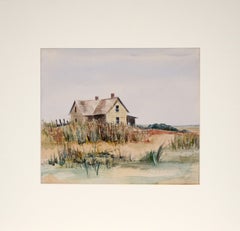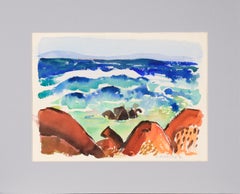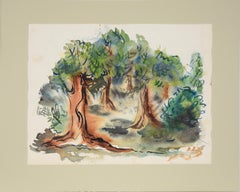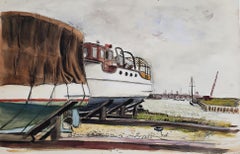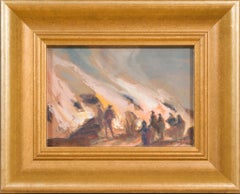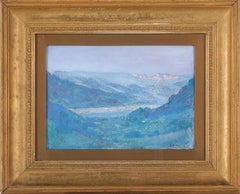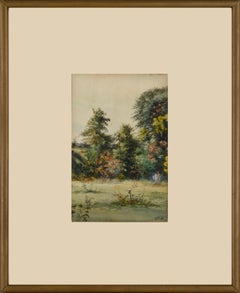
Early 20th Century Meadow & Trees Landscape Watercolor
View Similar Items
Want more images or videos?
Request additional images or videos from the seller
1 of 10
J.P. PalmerEarly 20th Century Meadow & Trees Landscape Watercolor1908
1908
Price:$880
$1,100List Price
About the Item
- Creator:J.P. Palmer (1856 - 1945, American)
- Creation Year:1908
- Dimensions:Height: 13.25 in (33.66 cm)Width: 11 in (27.94 cm)Depth: 0.5 in (1.27 cm)
- Medium:
- Movement & Style:
- Period:
- Condition:Some age toning to paper. Mat has been replaced. Vintage frame may show signs of wear consistent with age and history. Minor cosmetic issues will be minimized but may not be restored to original condition. New hanging hard-ware installed.
- Gallery Location:Soquel, CA
- Reference Number:Seller: JT-72921stDibs: LU5429624012
About the Seller
5.0
Platinum Seller
Premium sellers with a 4.7+ rating and 24-hour response times
Established in 1986
1stDibs seller since 2014
2,966 sales on 1stDibs
Authenticity Guarantee
In the unlikely event there’s an issue with an item’s authenticity, contact us within 1 year for a full refund. DetailsMoney-Back Guarantee
If your item is not as described, is damaged in transit, or does not arrive, contact us within 7 days for a full refund. Details24-Hour Cancellation
You have a 24-hour grace period in which to reconsider your purchase, with no questions asked.Vetted Professional Sellers
Our world-class sellers must adhere to strict standards for service and quality, maintaining the integrity of our listings.Price-Match Guarantee
If you find that a seller listed the same item for a lower price elsewhere, we’ll match it.Trusted Global Delivery
Our best-in-class carrier network provides specialized shipping options worldwide, including custom delivery.More From This Seller
View AllBotanical Study Autumn Grape Leaves #2
By Les Anderson
Located in Soquel, CA
Colorful study of grape leaves in autumn with abstracted elements and a pink/magenta background by California artist Les (Leslie Luverne) Anderson (American, 1928-2009). From the est...
Category
Late 20th Century American Impressionist Landscape Drawings and Watercolors
Materials
Watercolor, Laid Paper
$300 Sale Price
20% Off
Farmhouse by the Sea - Original Watercolor on Paper
Located in Soquel, CA
Farmhouse by the Sea - Original Watercolor on Paper
Tranquil landscape of a seaside farmhouse on the sand surrounded by coastal plants, in soft neutral watercolors. A distant ocean s...
Category
Late 20th Century American Impressionist Landscape Drawings and Watercolors
Materials
Paper, Watercolor
20th Century California Modernist Seascape in Watercolor on Paper
Located in Soquel, CA
Modernist 20th Century Rocky Plein Air California Landscape
A vibrant watercolor seascape by California artist Lucile Marie Johnston (1907-1994,...
Category
20th Century American Impressionist Landscape Drawings and Watercolors
Materials
Paper, Watercolor
Through The Trees - Original Watercolor on Paper
Located in Soquel, CA
Through The Trees - Original Watercolor on Paper
Original watercolor painting depicting a grove of vibrant green trees by Bertram Spencer (American, 1918-1992).
Presented in a lig...
Category
Mid-20th Century American Impressionist Landscape Drawings and Watercolors
Materials
Paper, Watercolor
Mid Century Modern Farmhouse Landscape in Watercolor and Ink on Paper
Located in Soquel, CA
Mid Century Modern Farmhouse Landscape in Watercolor and Ink on Paper
Bright, modern landscape by Robin Gay McCline (American, 1928-2008). A line of trees and buildings runs across ...
Category
Mid-20th Century American Impressionist Landscape Drawings and Watercolors
Materials
Paper, Ink, Watercolor
Vibrant Basilica Cityscape
By Diane Baldwin
Located in Soquel, CA
A bold and colorful cityscape of an urban Basilica by artist Diane Baldwin (American, 20th century). Signed "Baldwin" lower right. Unframed. Image, 22"H ...
Category
1970s American Impressionist Landscape Drawings and Watercolors
Materials
Paper, Watercolor
$239 Sale Price
20% Off
You May Also Like
Boat Scene
By Fairfield Porter
Located in Miami, FL
Watercolor on heavy paper
work is unframed
Signed by artist in pencil, lower right verso.
Property from the estate of Anne E. C. Porter, with the estate stamp, verso.
...
Category
1950s American Impressionist Landscape Drawings and Watercolors
Materials
Watercolor, Paper
Gathered by the Easter Fire, Dalsland
By Carl Oscar Borg
Located in Stockholm, SE
A rare and atmospheric work from Carl Oscar Borg’s early years in Sweden, this evocative gouache captures the tradition of Easter fires (påskeldar) in the rural region of Dalsland. A...
Category
Late 19th Century American Impressionist Mixed Media
Materials
Paper, Gouache
Mountain and Lake View, Gruyères
Located in Stockholm, SE
A watercolor depicting a mountain view and the lake Gruyère, (Lac De La Gruyère) in Switzerland by the American Impressionist and Tonalist Mary Rogers Williams (1857–1907). Signed M.R. Williams. On the verso, the artist wrote: ‘Painted in Gruyère July 1902.’ This is a newly discovered work by a rare woman artist who seldom appears on the art market. Small in scale, yet rich in atmosphere, power, and depth—a genuine little gem.
Mary Rogers Williams was born in 1857, in Hartford, Connecticut, the fifth of six children to a local baker. Orphaned by the age of fourteen, she pursued art with remarkable determination, studying at Hartford’s Decorative Art Society and the Art Students League in New York under William Merritt Chase. Her early mentor was James Wells Champney.
In 1888, she joined Smith College as associate professor of art, where she taught for nearly twenty years to help support her family. Alongside her academic career, she maintained a serious and evolving artistic practice, though much of it was pursued within the limitations of her era’s gender roles and financial pressures.
Her work is often classified as a blend of Tonalism and Impressionism—movements that were just taking shape during her lifetime. Tonalists used subdued palettes to evoke mood rather than detail, while Impressionists leaned toward brighter colors and broader subjects. Williams, working independently of art-world factions, forged a style rooted in mood, light, and atmosphere. She painted luminous pastels, watercolors, and oils—portraits, landscapes, and intimate studies of daily life.
Despite knowing figures like Whistler, William Merritt Chase, and Childe Hassam, she rarely aligned herself with any artistic “school” and found many male contemporaries pretentious or repetitive. She famously dropped out of Whistler’s Paris school, calling him “a pompous fop surrounded by fawners.” Though Mary Cassatt and Williams were both American Impressionists living in Paris, they never met—Cassatt enjoyed wealth and elite circles, while Williams was a self-reliant educator without patrons.
Williams traveled extensively throughout Europe—from the Arctic Circle to the ruins south of Naples—often alone or with her sister. She bicycled through fjords, hiked to medieval towns, and visited chateaux and harbors, all while sketching prolifically. She is likely the only 19th-century woman artist whose travels and daily life can be traced in such vivid, personal detail: what she ate, how she felt about fellow travelers, what she paid for trams, how the air smelled, what she wore, and how she missed home.
She documented everything—museum visits, church restorations, conversations with hotel guests, and her frustrations with men’s treatment of women artists. These letters, rediscovered in 2012 in a family boathouse, provide an extraordinary insight into not only her art but the intellectual and emotional texture of her life.
Her writings reveal not only artistic insight but the immense workload she carried. At Smith, she taught studio art and art history, organized faculty events, curated student exhibitions, wrote essays, handled housework, and even cooked and cleaned for her own lodgings. On vacations, she cooked for her family; in Europe, she waxed floors, painted walls, repaired clothing, and stoked fires—all while maintaining her painting and travel schedule.
Unlike many of her male peers, she had no assistants, no household staff, and little inherited wealth. Yet, as her letters reveal, she never saw herself as a victim—she relished challenges and even the absurdities of her era, from Italian waiters pushing marriage to department heads at Smith dismissing women’s artistic capacity.
Despite these challenges, Williams exhibited widely during her lifetime:
Paris Salon (1899)
National Academy of Design (1903–04)
Pennsylvania Academy of the Fine Arts
New York Water Color Club, American Water Color Society, Art Association of Indianapolis, and more.
She was praised in The New York Times, Hartford Courant, and Springfield Republican, and compared by peers to figures like Emily Dickinson—another New England woman of quiet yet profound artistic power. But unlike Dickinson, Mary Williams...
Category
Early 1900s American Impressionist Landscape Drawings and Watercolors
Materials
Paper, Watercolor, Cardboard
Rocks and Sea
By Robert Swain Gifford
Located in Bryn Mawr, PA
Born on a small island near Martha's Vineyard, R. Swain Gifford and his family moved to the New Bedford, Massachusetts, area when he was two years old. The Dutch marine painter Alber...
Category
Late 19th Century American Impressionist Landscape Drawings and Watercolors
Materials
Paper, Watercolor
Watercolor of the Oak Tree by Allen Tucker
By Allen Tucker
Located in Hudson, NY
Landscape watercolor by Allen Tucker of an oak tree. This piece, along with several others, was gifted to Una Brage, a friend of the artist in the 1930s.
More about this artist:
Allen Tucker, was an architect and painter so influenced by Vincent Van Gogh that he was called "Vincent in America". (Gerdts 291) Robert Henri and Maurice Prendergast were also credited as having an influence on Tucker's brushwork and compositions, the latter decisively. However, as his painting evolved, he did not fit into any tidy slot for description and was known as an individualist not easily categorized in American art history.
Tucker was born in Brooklyn in 1866 and graduated from the School of Mines of Columbia University with a degree in architecture and took a job as an architectural draftsman in the architectural firm of McIvaine and Tucker, his fathers business. During that time, he studied painting at the Art Students League with Impressionist John H. Twachtman, but it was not until around 1904, when he was 38, that Tucker became a full-time painter, leaving architecture behind. Many of his early canvases were classically Impressionistic with poplar trees resembling those of Van Gogh and haystacks and corn shocks...
Category
Early 20th Century American Impressionist Landscape Drawings and Waterco...
Materials
Paper, Watercolor
Mother and Children watercolor painting by John E. Costigan
By John Costigan
Located in Hudson, NY
Painting measures 22" x 28" and framed 26" x 32" x 2"
Hand-signed "J.E. Costigan NA 1952" lower left.
About this artist: John Costigan was a self-taught painter distinguished by h...
Category
Mid-20th Century American Impressionist Figurative Drawings and Watercolors
Materials
Paper, Watercolor
Recently Viewed
View AllMore Ways To Browse
J Palmer
J P Palmer
Plane Plane
Unsigned Painting
Original Art Spain
Blue Abstract Oil Painting
City Street Painting
Painted Wood Sculpture
Vintage Again And Again
Oil Painting Water
Architecture And Landscape Painting
Oil Painting Set
Streets Of Paris
Dark Landscape Art
Unknown Antique Painting
Oil Painting Of Man
Abstract Expressionist Oil
Impressionist Paris
